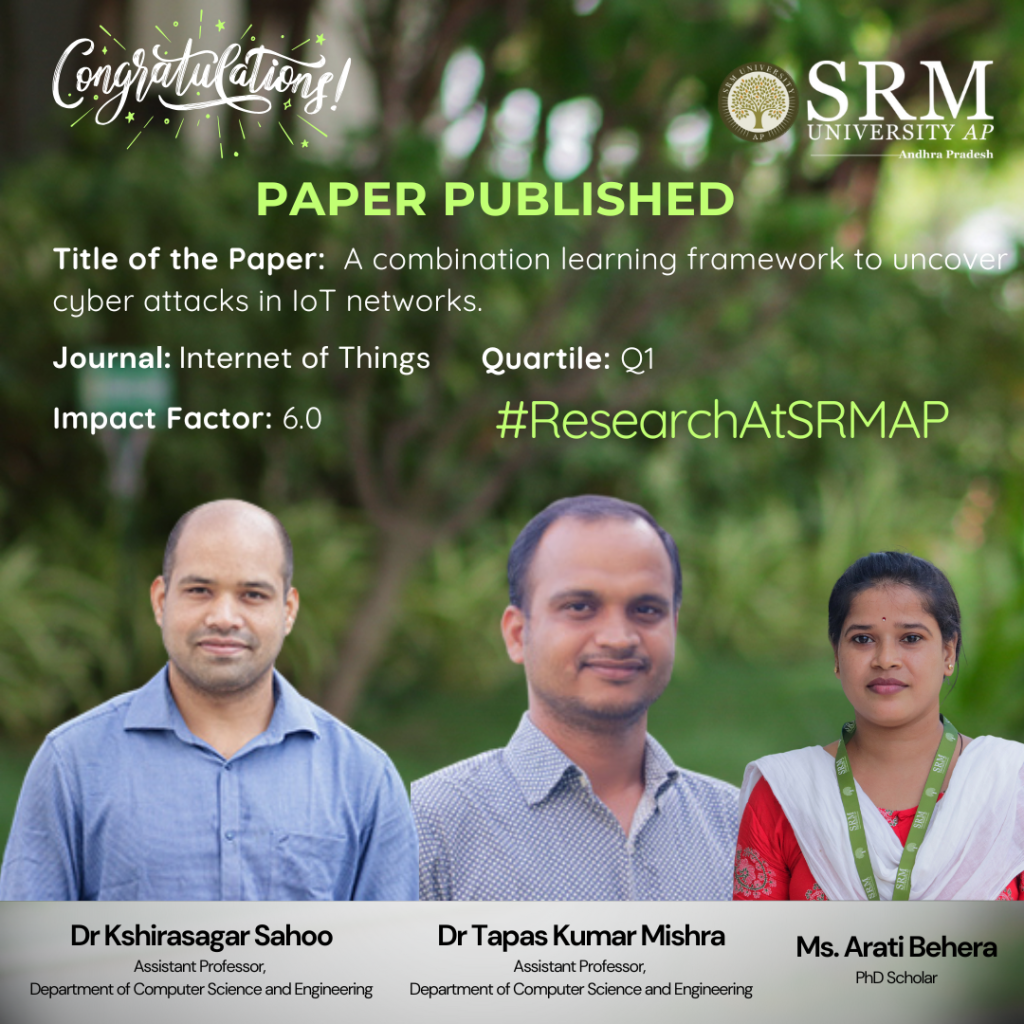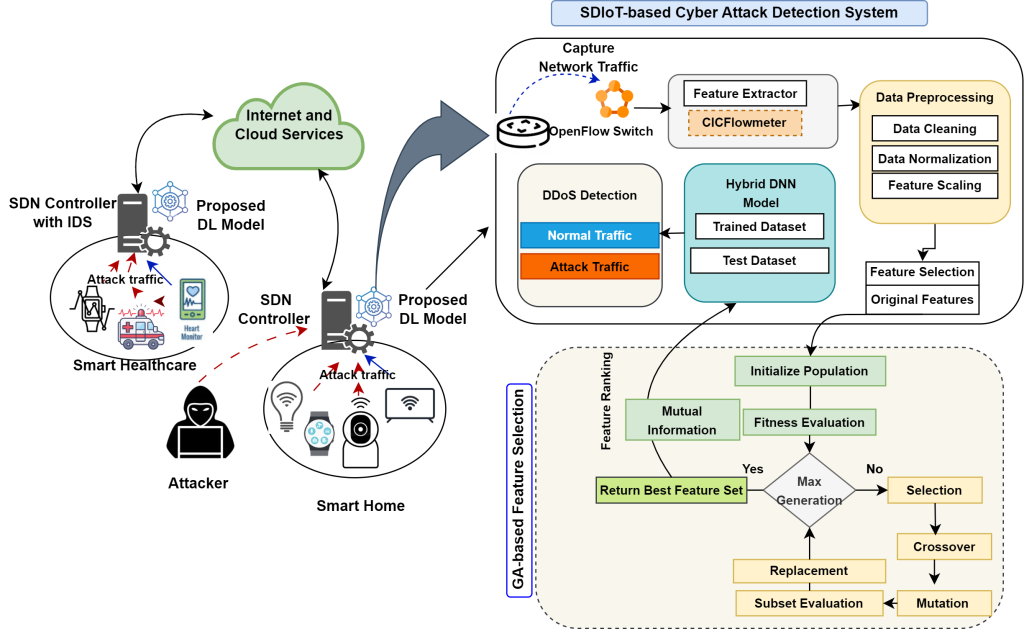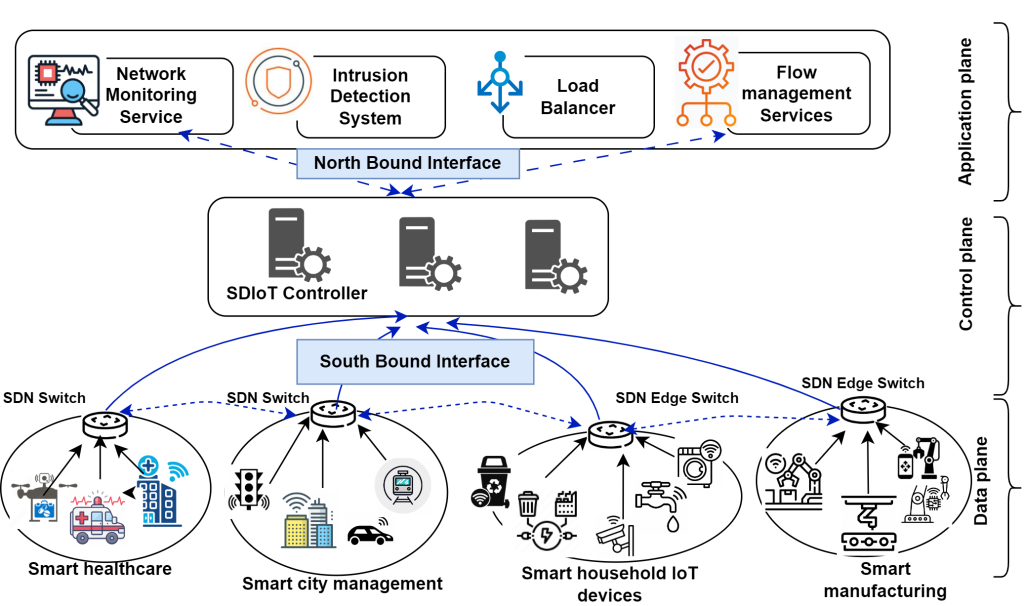
The Department of Computer Science and Engineering is proud to announce that Assistant Professors Dr Kshira Sagar Sahoo and Dr Tapas Kumar Mishra, along with their research scholar Ms Arati Behera, have published their paper “A Combination Learning Framework to Uncover Cyberattacks in IoT Networks” in the prestigious Q1 journal Internet of Things, which has an Impact factor of 6.
The article addresses IoT security challenges by utilising Software Defined Networking technology and AI. The authors use Genetic Algorithm to select the most important data features and a hybrid deep learning model combining CNN, Bi-GRU, and Bi-LSTM to detect cyber-attacks effectively. Tested on real-world IoT datasets, the system demonstrates superior accuracy, faster detection, and lower resource usage than existing methods, making it a promising solution for securing resource-constrained IoT networks.
Abstract
This study addresses the security challenges in IoT networks, focusing on resource constraints and vulnerabilities to cyber-attacks. Utilising Software Defined Networking and its adaptability, the authors propose an efficient security framework using a Genetic Algorithm for feature selection and Mutual Information (MI) for feature ranking. A hybrid Deep Neural Network (DNN) combining CNN, Bi-GRU, and Bi-LSTM is developed to detect attacks. Evaluated on InSDN, UNSW-NB15, and CICIoT 2023 datasets, the model outperforms existing methods in accuracy, detection time, MCC, and resource efficiency, demonstrating its potential as a scalable and effective solution for IoT network security.
Practical Implementation/ Social Implications of the Research
The practical implementation of this research lies in enhancing the security of IoT networks, which are increasingly integral to smart homes, healthcare, transportation, and industrial systems. By detecting and mitigating cyber-attacks efficiently, the proposed model can safeguard sensitive data, prevent service disruptions, and ensure the reliability of IoT systems.
Collaborations
This research has been conducted in partnership with Umea University Sweden.
Future Research Plans
There is potential to enhance the Deep Learning approach further to reduce the execution time at the power crunch device. Additionally, federated learning could be investigated as a use case, especially concerning edge devices within typical software-defined IoT networks.



